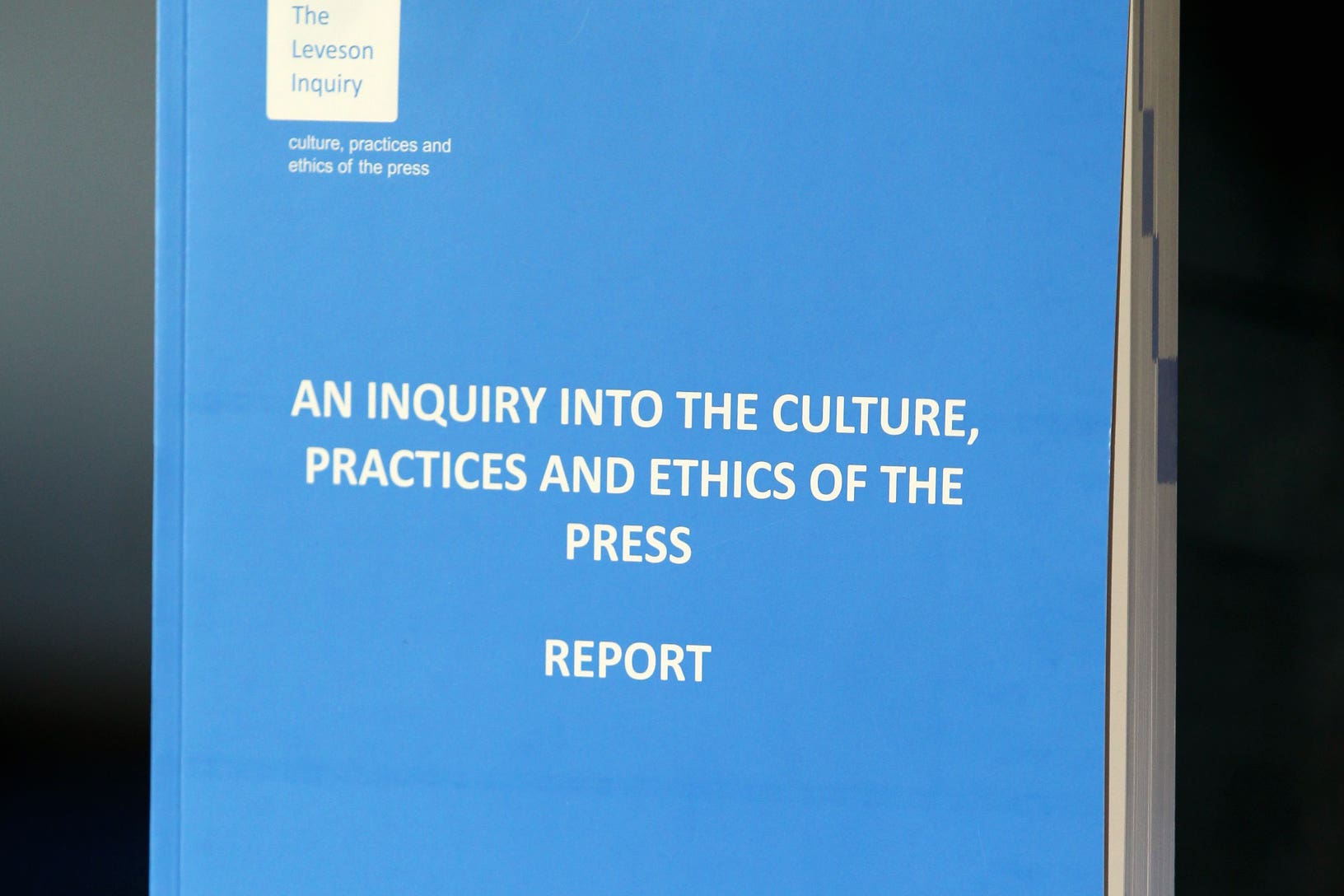Government accused of ‘bribing the press’ as its repeals media law
The law, Section 40 of the Crime and Courts Act 2013, was never actually implemented.

The Government has been accused of “bribing the press” as it seeks to repeal a media law.
In the wake of the Leveson Inquiry, a law was passed that would force publishers to pay the legal costs of people who sue them, even if they win, unless they signed up to a state-approved regulator.
This law, Section 40 of the Crime and Courts Act 2013, was never actually implemented, however, and more than 10 years later the Government now wants to repeal it in its new Media Bill.
Culture minister Lord Parkinson of Whitley Bay praised the “strengthened independent self-regulatory system” of the Independent Press Standards Organisation (Ipso) and told peers that repealing Section 40 is “removing a threat to freedom of the press”.
However, Labour peer Lord Lipsey, who was previously the deputy editor of two national newspapers, branded Ipso a “phoney regulator” and accused ministers of cynically tabling this bill in an election year to get the press on side.
He told the House of Lords during second reading of the Media Bill: “Nothing happened for 13 years until (the repeal of Section 40) was introduced in this year, 2024.
“Why is it a special year?
“Because we’re having an election, that’s why it’s a special year, we’re getting this clause after a decade of doddering and dithering because the Tories hope to bribe the press.
“I’m sure ministers hope that the Government will use every possible manipulation to prevent the likely disaster for the Tories at the next election.
“This clause is not a piece of considered legislation, it is a straight-forward bribe to the newspapers.”
He added: “Ministers of course know this perfectly well, and so they say things have changed for the better since Leveson, so we no longer need it.
“Change for the better isn’t, to me, terribly obvious.”
He argued that Ipso was a “phoney regulator designed to provide the fig leaf that the press wants to cover its worst excesses”.
He highlighted perceived “failings” of Ipso, including that just 0.56% of complaints to the organisation are upheld.
Tory peer Lord Black of Brentwood, deputy chairman of the Telegraph Media Group, responded that Lord Lipsey “seems sadly stuck in a past that has long since vanished.”
He branded Section 40 of the Crime and Courts Act “one of the most odious and shameful pieces of legislation ever put onto the statute book in this country in the modern democratic age.”
He said: “It sought for the first time since 1695 to hold a gun to the head of the free independent press in the UK and say: ‘Join a state-backed regulator or we will close you down’, which would have been the real world commercial impact of forcing publishers, particularly regional and local ones, to pay the costs of privacy and libel action, even if they won.
“It would have punished newspapers and their websites for telling the truth and utterly destroyed investigative journalism.
“It would have been completely incompatible with our commitments under the ECHR and the result of all that is that it has severely dented the UK’s once shining reputation of press freedom.
“If it had ever been implemented, it would have been the day liberty died in this country.
“For all those reasons, it must not be allowed to stand a moment longer on the statute book.
“The repeal of this abominable legislation is long overdue and all credit to the Government.”
The founding chairman of Ipso, Tory peer Lord Hunt of Wirral, told peers: “We hear a lot from critics of the press about how the newspapers can and should be accountable to politicians and Parliament.
“But let us not forget the vital role that the free press plays in holding us, Parliament and the politicians, to account too in its unique position as, what my old school friend Sir Brian Leveson termed, a ‘critical witness to events’.”
He added: “When we first discussed this legislation, various voices, including my own and Lord Black, warned that the major newspaper publishers would and could not be coerced into anything that smacked of statutory regulation.
“Our warnings may have been unwelcome, and I think it was the only time I’ve been heckled in this House, but they were founded in truth.
“Using a statutory body for that purpose was a bridge too far.”
Responding to Lord Lipsey’s comments about Ipso, he said: “The thrust of the argument is that the Ipso has failed because of the relatively low number of complaints it has upheld.
“Progress should be measured not by complaints upheld, but by behaviour improved.”
He concluded: “Section 40 has never been activated – and had it been, it would have been ineffective at best, and far more likely, counter-productive at worst, with unforeseen and unforeseeable consequences that would have necessarily impinged on press freedom.”
Bookmark popover
Removed from bookmarks